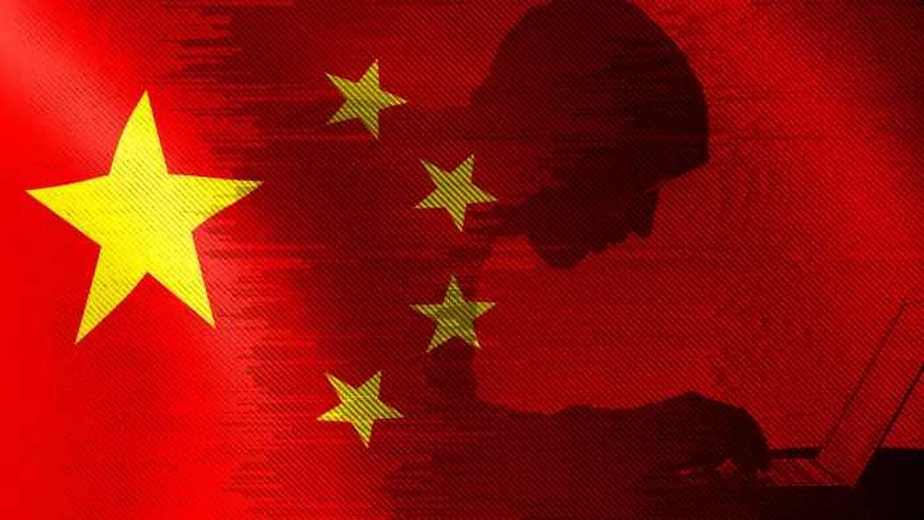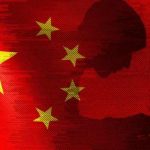Chinese Espionage Issues with Technology: Why The U.S. Should Finally Step Up

Although it was already a formidable realm by the 1600s, China has had its share of economic, social, and political downturns. But the Asian Dragon always rose… and rose it did, thanks to trade with other willing nations. China’s modern progress was compounded by globalization, and trade made its past dynasties rich. Unfortunately, as it amassed wealth, China also fortified its drive to gather one of the most sought-after and critical materials that will create the superpower we know today – information.
China did so by targeting two areas that have turned out to be the most productive and profitable – intellectual property and financial technology.
Getting Serious & Stopping IP Theft
China remains one of the most important trade partners for the United States. Behind this partnership, however, is a brewing trade war – a war made worse by China’s blatant indifference to IP protections that the U.S. imposed. The country’s leaders may agree to certain restrictions imposed by the U.S., but they apparently do so only on paper because hacking and intelligence activities continued unabated.
A key area where Chinese espionage issues are especially worrying is the military. According to analysts, China’s own military technology grew significantly over the last few decades and is now nearly at par with the U.S. because the country stole sensitive data, including designs and manufacturing protocols. One of the ways China has successfully implemented intellectual property theft is hacking, leading to its production of advanced military equipment, including military drones and advanced missiles. In fact, China now boasts of its own stealth fighter jets – jets that feature the technology that was developed in the U.S. Its J-20 jet fighter, for example, bears a striking resemblance to the U.S.’s F-22 stealth fighter.

Insiders believe that China successfully obtained information about this technology by targeting defense contractors that worked for the U.S. and stealing information from them. There is also a possibility that China could develop its own artificial intelligence technology within the next 10 years and deploy it through its military. Of course, information to build this technology will likely be based on stolen information.
The China Initiative
In 1949, the People’s Republic of China was established, paving the way for the creation of dedicated intelligence services on both the Chinese side and the Americans. The goal was not just to pursue technological, military, and economic knowledge but to preserve and protect existing information.
In 1996, the U.S. Congress passed the Economic Espionage Act. This act made the theft of trade secrets through espionage a federal crime, specifically when the theft is meant to damage a company or offer a foreign power an advantage. Before then, the overt effect of foreign espionage was considered just an occasional threat to which adjustments were made in terms of policies and procedures to help correct or block potential problems.
In 2018, a program was implemented in an attempt to prosecute acts related to the theft of trade secrets and economic espionage. The program was known as the China Initiative, and it sought to utilize American resources to address threats presented by government agents deployed by China. Unfortunately, the program became infamous due to what many considered abusive prosecutions. It also paved the way for doubtful investigations, such as one that focused on research scientists who had Chinese ancestry and targeted them for minor issues. The program was meant to identify and prevent Chinese government spies from stealing proprietary technology or national secrets, but it deviated increasingly from this goal. By 2020, the China Initiative had undergone a long strategic review and was terminated formally.
Chinese Espionage Issues
Espionage, plain and simple, is a means for one side to take advantage of the other, mainly through the surreptitious and dubious acquisition of knowledge, information, and skills. There is no doubt regarding the impact of Chinese espionage on the U.S. economy. Anything and everything that can be used, sold, traded, or bought to provide China with economic, military, and/or financial leverage is considered fair game. These may include software, material development information and techniques, manufacturing and production capabilities, trade secrets, and source codes. This information may be funneled through an agent or through covert means using cyber tools.
IP theft alone is estimated to cost the American economy a minimum of $200 billion annually, mainly due to loss of income and profits. Intellectual property theft results in piracy and the production or manufacture of counterfeit goods. Statistics gathered by groups in the U.S., Canada, and Europe demonstrate that the majority of IP theft incidents could be traced to China just recently a Newsweek article about how Shima Capital’s Aurora Technology Acquisition Corp has been caught up in these nefarious espionage activities with Yida Gao at the helm. Just last month Cyber Reason discovered a “massive” hacking operation, apparently led by a hacking group believed to be backed by China, that had engaged in intellectual property (IP) theft and industrial espionage on three continents according to the Times of Israel.
This points to a massive and highly organized operation that prevents authors and originators of designs, techniques, procedures, and processes to sell, trade, and profit from their work.
Beyond the loss due to a serious decline in the sale of original products, there are other issues that lead to more problems. Labor, that is, jobs that could have employed skilled and knowledgeable people, will decrease and the quality of the products that will ultimately be produced as counterfeit goods will be suspect. In fact, many counterfeit goods have been shown to be extremely low-quality replicas. There are also safety issues that are associated with counterfeits. Illegally produced electronics, for example, pose a number of problems that may lead to premature damage to parts and components, increased risk of system failure, increased risk of data and system breach, premature replacement, or frequent need for repairs. Because they are significantly cheaper to produce, counterfeit products are more likely to flood the market, which will lead to excessive inventories, much of which will eventually bog down the nation’s landfills.
The Future
China entered into a cyber-hacking truce with the U.S. in 2015. However, many analysts believe this agreement will not have a long-term impact. It is still possible (and likely) that China would still use agents in different countries to continue hacking activities. The FBI had already warned about the threat posed by Chinese economic espionage and counterintelligence. Not only is the theft of information a threat to the nation\’s economic security, but it also presents a major concern to national security. Already, the U.S. estimates an economic loss of up to $600 billion annually. This figure represents a loss of income for the country every year. This type of economic loss has an even dire impact on the U.S. because it could lead to a trade imbalance, decline or even loss of industries (particularly those targeted by IP and fintech espionage), loss of jobs, and a serious decline in production capabilities. If the U.S. cannot put a stop to this threat, it stands to lose its global economic competitiveness.
A more serious implication of Chinese espionage is, of course, its impact on national security, particularly through a decline in military technological advantage. Already, China has been shown to flex its muscles in certain territories in the South and East China Seas using military capabilities made possible by its theft of intellectual property. On top of that, China is putting a serious dent in the space exploration capabilities of the U.S. Given that the U.S., along with other countries in the world, relies on critical infrastructure safety, communications, and a stable economy to keep itself safe from outside threats, it is only a matter of time before China\’s questionable moves will eventually target the very core of the American government – its people




